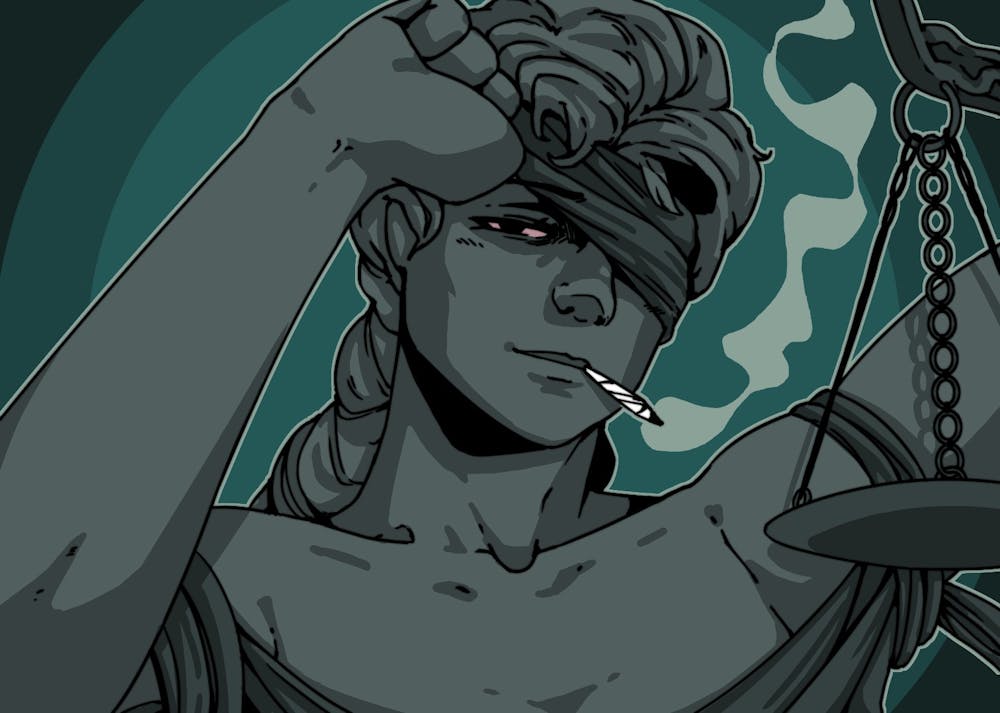Since the 1970s, the War on Drugs has been raging rampantly across the U.S. in the form of increased federal funding for agencies such as the Drug Enforcement Administration, which are cracking down on drugs in America.
This governing has resulted in a multitude of federal laws against drug possession and usage, along with arrests and mass incarceration across the country.
Fast forward to the 21st century and we've started to see the War on Drugs for what it really is: a war on people in poverty and people of color. The War on Drugs is elitist, racist and has created nothing but an overcrowded prison population and has wasted massive amounts money.
The War on Drugs is estimated to have cost the U.S. over $1 trillion. People of color are disproportionately incarcerated for drug charges based on federal laws creating during the War on Drugs, keeping poor people below the poverty line and keeping marginalized groups in the prison system.
What this country needed to solve our apparent drug problem was never harsher punishment, but has always been treatment and rehabilitation.
The cost of criminalizing drugs is particularly noticeable in Arizona.
According to a 2018 report by FWD.us, the prison population in the state is 12 times what it was 40 years ago, and the state's median length of stay in prison for distribution of dangerous drugs is four times the national average. A study from the PEW Charitable Trusts in 2018 found that increasing imprisonment did not decrease states' drug problems.
The city of Phoenix has a population which is 43% Hispanic/Latine and 7% Black, according to the U.S. Census Bureau. These two groups are susceptible to being racially profiled for having or using drugs. The War on Drugs and the recent legalization of recreational marijuana in Arizona are prime examples of the racism in this idly disguised way of incarcerating marginalized people.
"We didn't learn anything from prohibition, that you cannot regulate what people do in their private lives," said Joseph DePinto, a faculty associate with the Watts College of Public Service and Community Solutions. "Now, the whole War on Drugs … they were going after suppliers and users, but who ends up getting the most penalties? It's the users. And unfortunately, lots of times it is from disadvantaged groups and people of color."
Records related to drug use and other drug charges affect people's ability to find housing and apply for jobs, which could prevent them from having a successful future. In the state of Arizona, which has the fourth largest imprisonment rate in the country, hundreds of thousands of people are now able to expunge their records of minor offenses related to marijuana, thanks to Proposition 207.
READ MORE: Arizona's marijuana laws and the impact they have on students
"Hanging out in downtown Tempe … you really didn't notice a disproportionate number of minorities getting cited," said Keith Frankel, former Justice of the Peace for the San Marcos Justice Court. "Now, if you went down to the downtown corridor; South McDowell, West McDowell … you look at who's getting cited for what types of crime, you might find a demographic difference."
According to a 2013 report by the ACLU, Black people were 3.73 times more likely to be arrested for possession of marijuana than white people, despite the fact that Black and white people use marijuana at similar rates.
While there is no single or sure way for individuals to stop the War on Drugs, there are actions people can take to push us in the right direction: voting for politicians with an agenda of ending the War on Drugs, signing petitions to help people wrongly incarcerated for using drugs and funding treatment for those who need rehabilitation instead of incarceration.
"Why do we have to spend time and money doing something that doesn't really affect anybody else?" DePinto said. "I'm not minimizing that people have drug problems. I spent many years working in addictions, but we need to spend time with treatment instead of immediately just locking them up."
Reach the columnist at amvald11@asu.edu and follow @anxieteandbread on Twitter.
Editor's note: The opinions presented in this column are the author's and do not imply any endorsement from The State Press or its editors.
Want to join the conversation? Send an email to opiniondesk.statepress@gmail.com. Keep letters under 500 words and be sure to include your university affiliation. Anonymity will not be granted.
Like The State Press on Facebook and follow @statepress on Twitter.
Continue supporting student journalism and donate to The State Press today.

Analisa Valdez is a reporter with the Echo, focusing on covering the arts and entertainment world. Analisa has been apart of the State Press for two and a half years and is in her third year at the Walter Cronkite School of Journalism and Mass Communication.




